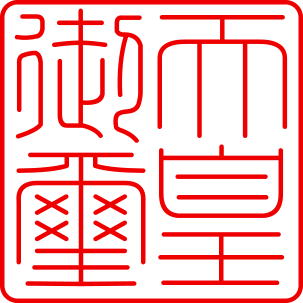Victory Message by Chinese Generalissimo Chiang Kai-shek
August 15, 1945
Right will triumph over might – this great truth which we never once doubted has been finally vindicated. Our faith in justice through black and hopeless days and eight long years of struggle has today been rewarded. The historical mission of our National Revolution has at last been fulfilled.
For the peace that lies before us we pay grateful tribute, first to the millions of our soldiers and civilians who so bravely sacrificed their lives, to our Allies who fought by our side for freedom and right, and to the Father of our Republic, Dr. Sun Yat-sen, who labored all his lifetime to guide our National Revolution to success. But for him we would not be enjoying this day of victory. Above all, we join in thanksgiving to our righteous and merciful God.
The people of China suffered and sacrificed more each year as our long war of defense went on. But the confidence that we would emerge victorious also grew from day today. Our fellow countrymen in the enemy-occupied areas had to endure a long night of devastation and disgrace. Today they are liberated and can see again the White Sun in the Blue Sky. The cheers and rejoicings of our armies and people have their deepest meaning in this new freedom of our long-oppressed compatriots.
We have won the victory. But it is not yet the final victory. The universal power of righteousness has not simply achieved one more triumph. We and the people of all the world fervently hope that this war may be the last war in which civilized nations engage.
If this is really to be the last war in human history then our people will not feel that the indescribable cruelties and humiliations they have endured are too big a price to have paid or that peace for them has been too long delayed.
Even in periods of deepest gloom and despair our people, with a fine inherited loyalty, fortitude, magnanimity and goodwill, held to the conviction that sacrifices made for justice and humanity would surely be followed by rightful compensations.
The greatest compensation has been the mutual trust and confidence between peace-loving peoples of the world born out of our common struggle. With the flesh and blood of their armed youth the United Nations built a long continuous dyke against the tide of aggression. All who took part in the great conflict are now allies, united not simply for temporary advantage, but rather because of a great common faith-noble and enduring-that binds us together. No intrigues can wreck this great union.
It is my sincere belief that all men on earth – wherever they live, in the East or the West, and whatever the color of their skin may be – will someday be linked together in close fellowship like members of one family. World war is indivisible and world peace, too, is indivisible. It has encouraged international understanding and mutual trust which will serve as a powerful barrier against future wars.
I am deeply moved when I think of the teachings of Jesus Christ that we should do unto others as we would have them do unto us and love our enemies. My fellow countrymen know that “Remember not evil against others” and “Do good to all men” have been the highest virtues taught by our own sages. We have always said that the violent militarism of Japan is our enemy, not the people of Japan. Although the armed forces of the enemy have been defeated and must be made to observe strictly all the terms of surrender, yet we should not for a moment think of revenge or heap abuses upon the innocent people of Japan. We can only pity them because they have been so sadly deceived and misled, and hope that they will break away from the wrong-doing and crimes of their nation. Let all our fellow citizens, soldiers and civilians remember this.
The enemy’s imperialistic designs on China have been thoroughly crushed. But relaxation and pride are not rewards of victory that we seek. Peace, when fighting has entirely ceased, will confront us with stupendous and difficult tasks, demanding greater strength and sacrifice than the years of war. At times we may feel that the problems of peace that descend upon us are more trying even than those we met during the war.
I think first of one very serious problem – how to make the peoples misguided by fascist rulers admit their mistakes and defeat, and recognize that our struggle for national independence, democracy and the welfare of all the people is more in harmony with truth and human rights than their struggle for land and power by means of violence and terrorism.
Permanent world peace can be established only upon the basis of democratic freedom and equality and the brotherly co-operation of all nations and races. We must march forward on the great road of democracy and unity and give our collective support to the ideals of lasting peace.
I urge all of our friends of the Allied nations and all my own countrymen to face the fact that the peace we have gained by arms is not necessarily the beginning of permanent peace. Only if our enemies are conquered on the battleground of reason, only if they repent thoroughly of their folly and become lovers of world peace like ourselves, can we hope to satisfy the yearning for peace and achieve the final goal of the great war that has just ended.

